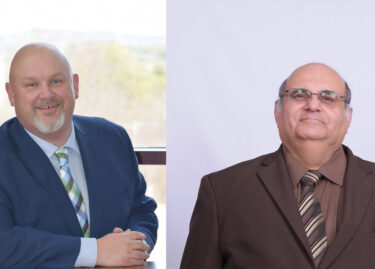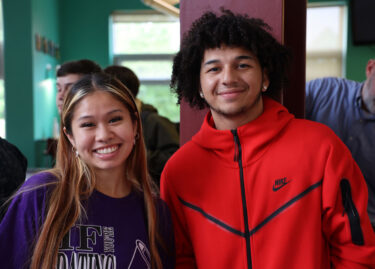For young people planning on going to college for the first time or returning, the events of 2020 to date may have created uncertainties. That’s why we have seen heightened interest in a gap year, or year off studying to do something else, such as work, travel or volunteer. I’d like to suggest a fourth option – what about a gap year closer to home contributing to your community, while maintaining your postsecondary momentum by taking courses at your local community college?
Young people considering next steps in life have much to ponder right now. Surveys of high school seniors about their plans for the fall tell us that they have major concerns, including fear about being on a crowded campus and questions about online offerings versus the onsite experience. These concerns – and perhaps an interest in volunteering or getting involved in social justice issues – are making the concept of a gap year intriguing for some 2020 high school graduates.
Historically, a gap year from college has been a time to reflect, take a pause on education and pursue other interests. While these endeavors are noble and may result in positive life experiences, there are many practical factors that should also be taken into account. These include the challenges of finding a job due to the pandemic, travel constraints that limit international experiences, and the impacts associated with “stopping out” of college – where too often, stopping out ends up equaling staying out.
Is the choice simply a gap year or rolling the dice on a residential university? Some colleges and universities have made public statements about their plans for the fall – online or onsite – and some are waiting as long as possible to make final decisions. With an average cost of about $30,000 a year for tuition, room and board according to educationdata.org, many students and families need to think carefully about the cost of a four year college before making a final decision especially if they don’t yet know if classes will be onsite or online or what turns that may take as the pandemic progresses.
Working during a gap year has also been a popular option. But with unemployment rates not seen since the Great Depression and even higher numbers for youth – the U.S. Bureau of Labor Statistics reported a rate of 25.2% for age 16-24 for May– working might not be viable. Positions that would normally be available to young people may remain suspended or eliminated, particularly in the hard-hit sectors of hospitality and retail. Furthermore, many of the international opportunities that gap-year students depend on are not available due to the ongoing travel restrictions.
“Stopping out” or just taking a year off isn’t the answer. It disrupts the pathway to earning a degree which we know will increase earnings over a lifetime, in addition to countless other benefits. Studies show that students who stop out are less likely to earn a degree, and the combination of college debt and no degree can lead to lower earning potential and higher unemployment over a lifetime.
What should students and families do? One option is to reimagine the gap year, finding activities that develop character, career skills and inspire passion, but do so close to home. Many students involved in a gap year are volunteering, or working in ways that help them discover their passions or delve into societal issues important to them. Local non-profits need help to continue their important work in our communities. And while students are looking for the volunteer position that will spark their passion, a local community college can help them develop the skills they will need to make that passion a career. Lakes Region Community College and all NH’s community colleges offer affordable, flexible and transferable programs that reflect the needs of the communities they serve. That is partly the reason why community colleges cultivate strong ties to local employers. For students, that means that enrolling in a community college will provide exposure to a network of contacts in the community. Furthermore, the real world and personalized approach to education that community colleges provide translates into a learning experience that is relevant and grounded in the passions and careers students wish to develop.
In many cases, the passions students wish to discover can be discovered close to home. And, now more than ever, our communities need all of us. Rural communities in the central and northern parts of our state are challenged by ongoing out-migration which means that they suffer from an even greater need for talented and energetic young people. The COVID-19 pandemic has likely exacerbated that need making the enthusiasm and commitment of young people even more critical. This is the time to think about how you can contribute to your community, and keep up your own momentum. Your local community colleges offers a direct, meaningful and affordable path for you to not only discover, but also grow into the professional you want to be.
Much like decision of choosing a college, considering all options and possibilities, including the ones that seem obvious, practical and uncomplicated, is key to finding the best fit. It may mean a different, more local path than the one originally envisioned but one that can ultimately lead to the realization of your dreams and passions and to rewarding experiences as part of a community.
Larissa Baía is the president of Lakes Region Community College, a fully accredited, comprehensive community college in the Lakes Region that serves over 1,200 students annually.



